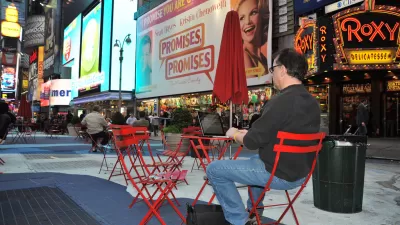Most "smart city" projects to-date are somewhat isolated and are not part of a more comprehensive network.

"Smart Cities" are a catchall phrase for using technology to make cities more resilient, responsive, and financially solvent. A recent piece in Scientific American notes that it doesn't always work out that way, at least not yet, as efforts often fail to account for local, government and socioeconomic conditions.
A smart lighting system here and a traffic signal timing system there are isolated, not part of a comprehensive, integrative system. Kendra Smith writes:
"The current reality of smart cities is that there aren’t any. At the end of the day, most so-called smart cities are just cities with a few or several standout smart projects."
The article asks important questions like how a smart city affects social justice, what is its true cost, and who decides what the city really needs before any switches get flipped?
FULL STORY: The Inconvenient Truth about Smart Cities

Planetizen Federal Action Tracker
A weekly monitor of how Trump’s orders and actions are impacting planners and planning in America.

Maui's Vacation Rental Debate Turns Ugly
Verbal attacks, misinformation campaigns and fistfights plague a high-stakes debate to convert thousands of vacation rentals into long-term housing.

San Francisco Suspends Traffic Calming Amidst Record Deaths
Citing “a challenging fiscal landscape,” the city will cease the program on the heels of 42 traffic deaths, including 24 pedestrians.

Amtrak Rolls Out New Orleans to Alabama “Mardi Gras” Train
The new service will operate morning and evening departures between Mobile and New Orleans.

The Subversive Car-Free Guide to Trump's Great American Road Trip
Car-free ways to access Chicagoland’s best tourist attractions.

San Antonio and Austin are Fusing Into one Massive Megaregion
The region spanning the two central Texas cities is growing fast, posing challenges for local infrastructure and water supplies.
Urban Design for Planners 1: Software Tools
This six-course series explores essential urban design concepts using open source software and equips planners with the tools they need to participate fully in the urban design process.
Planning for Universal Design
Learn the tools for implementing Universal Design in planning regulations.
Heyer Gruel & Associates PA
JM Goldson LLC
Custer County Colorado
City of Camden Redevelopment Agency
City of Astoria
Transportation Research & Education Center (TREC) at Portland State University
Jefferson Parish Government
Camden Redevelopment Agency
City of Claremont





























